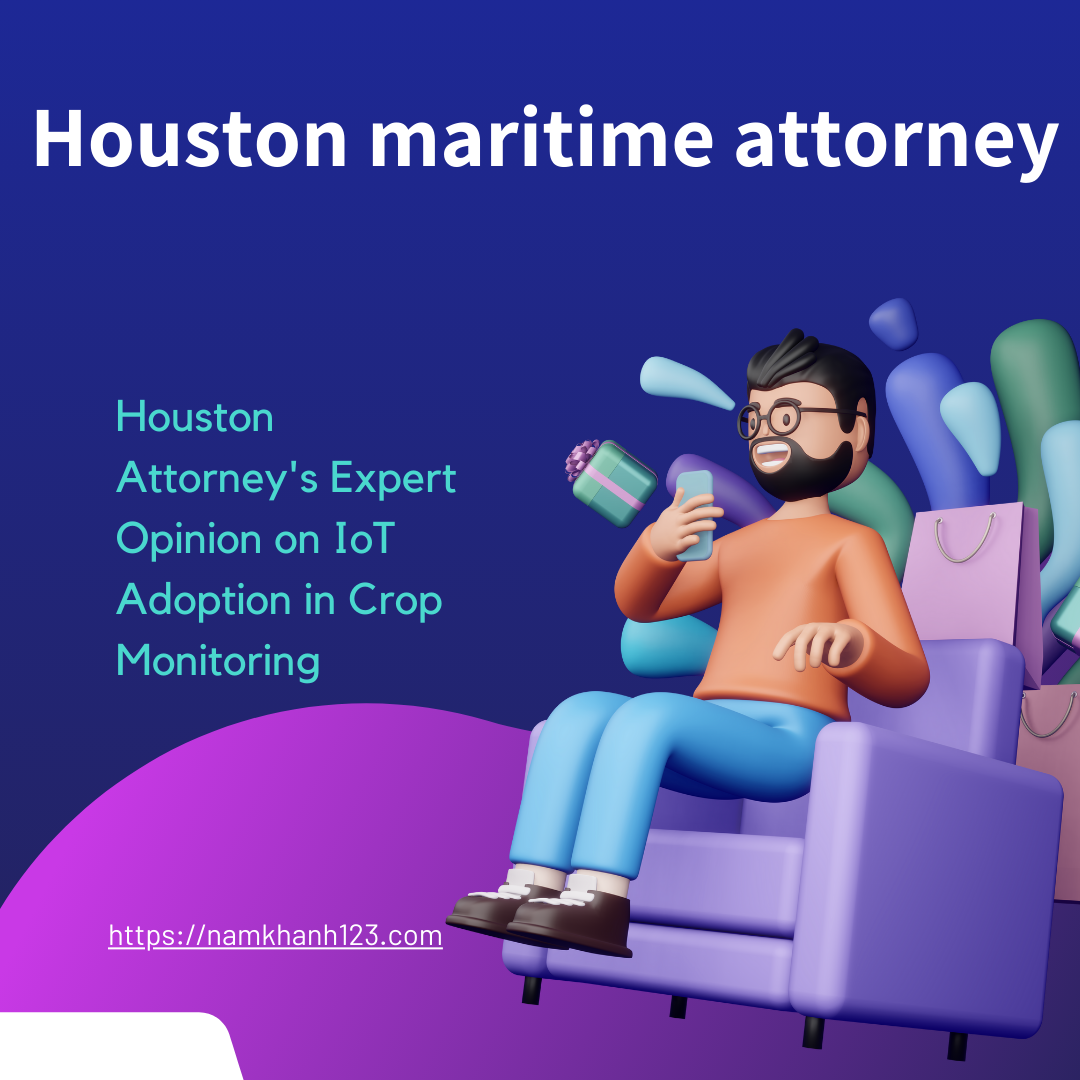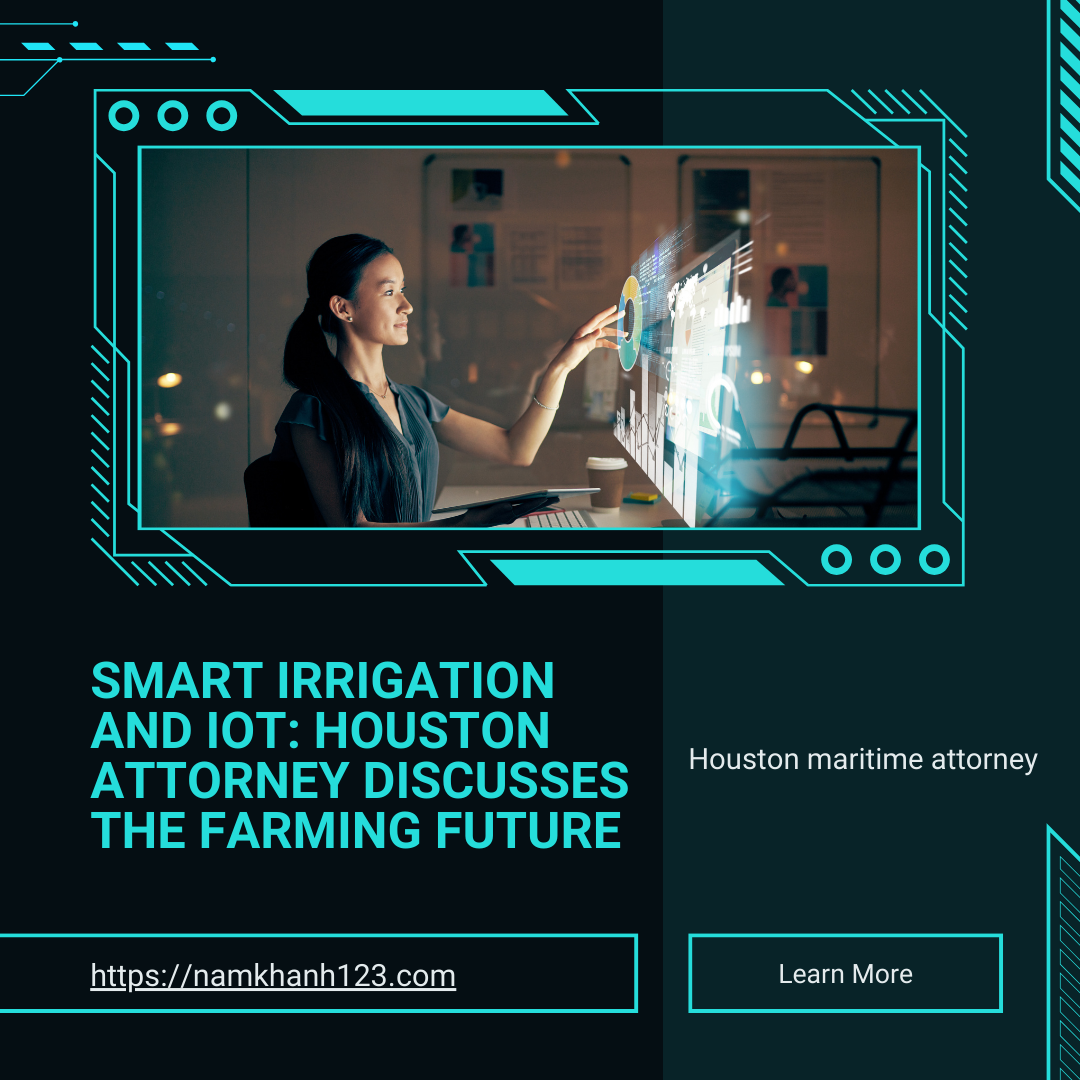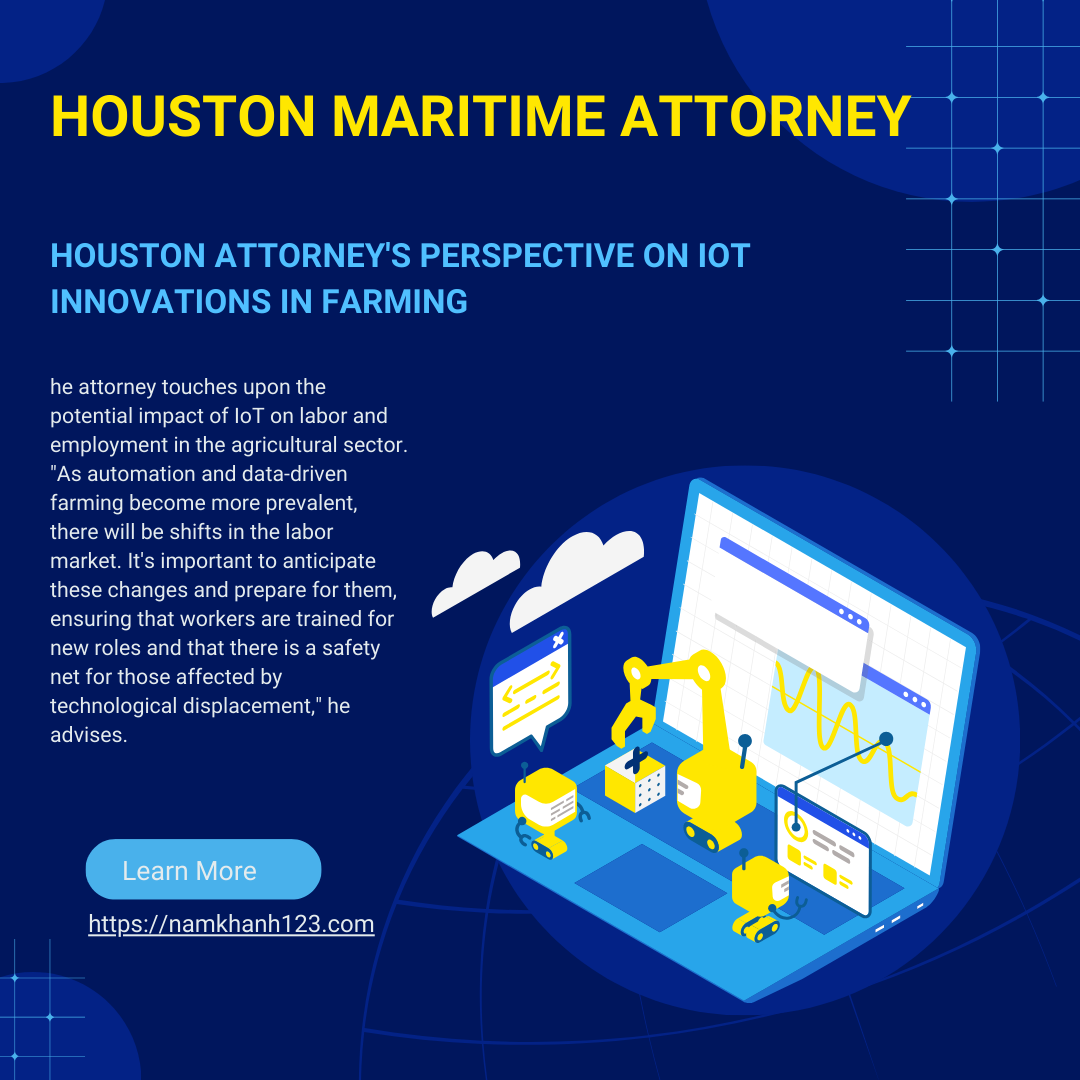In an exclusive feature, a distinguished Houston attorney with expertise in agricultural technology law provides a comprehensive analysis of the adoption of the Internet of Things (IoT) in crop monitoring. This insightful article explores the legal, ethical, and practical considerations of integrating IoT technologies into agricultural practices, offering a nuanced understanding for farmers, technologists, and policymakers.
The Revolutionary Impact of IoT on Crop Monitoring
The attorney begins by discussing the revolutionary impact of IoT on agriculture, particularly in crop monitoring. “IoT technologies have transformed traditional farming into a high-tech operation, allowing for real-time monitoring of crop health, soil conditions, and environmental factors. This level of precision leads to enhanced decision-making, increased yields, and sustainable farming practices,” he explains.
Legal Considerations in IoT Integration
Delving into the legal aspects, the attorney underscores the importance of understanding the legal landscape when integrating IoT into crop monitoring. “Farmers and technology providers must navigate a complex web of laws and regulations concerning data privacy, intellectual property rights, and regulatory compliance. It’s crucial to have a solid grasp of these issues to ensure a smooth and lawful integration of IoT technologies,” he advises.
Intellectual Property and Technological Advancements
The article then addresses the importance of protecting intellectual property in the realm of IoT. “As new technologies emerge, so do new intellectual property considerations. Farmers and innovators must protect their inventions through patents and copyrights while also respecting the IP rights of others. This fosters a healthy environment for ongoing innovation and competition,” the attorney notes.
Data Privacy and Security in Crop Monitoring
With the vast amount of data generated by IoT devices, the attorney highlights the critical issues of data privacy and security in crop monitoring. “The data collected is invaluable for decision-making but also poses privacy and security risks. Adhering to data protection laws and implementing robust security measures is essential to protect sensitive information and maintain trust in IoT systems,” he cautions.
Ethical and Social Implications
The article explores the ethical and social implications of using IoT in agriculture. “While IoT offers immense benefits, it’s important to consider its impact on the agricultural community, labor, and the environment. Ensuring that technology adoption is ethical and socially responsible is paramount for the long-term sustainability and acceptance of IoT in farming,” the attorney suggests.
The Future of Farming with IoT
Looking forward, the attorney shares his vision for the future of farming with IoT. “As technology continues to advance, we can expect even more sophisticated crop monitoring systems. However, the true potential of IoT will only be realized if legal, ethical, and practical issues are addressed effectively. Collaboration between legal experts, technologists, and the farming community is crucial for a successful and sustainable future,” he concludes.
Emphasizing Compliance and Regulatory Awareness
The attorney further stresses the importance of compliance and regulatory awareness in the realm of IoT and agriculture. “Farmers and technology providers must be acutely aware of the agricultural and technological regulations that impact their operations. From environmental laws to data management regulations, staying compliant is not just about legal obligation; it’s about ensuring the sustainability and integrity of your farming practice,” he asserts.
Navigating the Challenges of IoT Integration
He also addresses the challenges that come with integrating IoT into traditional farming practices. “Adopting new technologies can be daunting. It involves not just understanding and implementing the technology itself but also managing the legal and operational changes that come with it. Farmers must be prepared to navigate these challenges with the right support and resources,” the attorney advises.
The Importance of Data Management Strategies
The article highlights the critical role of effective data management strategies in IoT crop monitoring. “The data collected through IoT devices can provide invaluable insights for crop management. However, managing this data responsibly and efficiently is crucial. Farmers need to implement robust data management plans that comply with legal standards and optimize the use of collected data for better decision-making,” he notes.
Advocating for Equitable Access to Technology
The attorney advocates for equitable access to IoT technology in agriculture. “It’s essential that these advanced technologies are accessible to all farmers, regardless of their operation’s size or location. Legal frameworks and industry initiatives should work towards eliminating barriers to access, ensuring that the benefits of IoT crop monitoring are available to the entire farming community,” he emphasizes.
Preparing for the Future of Agricultural Law and IoT
Concluding his expert opinion, the attorney discusses the future of agricultural law in the context of IoT. “As we look to the future, it’s clear that the legal landscape will continue to evolve alongside technological advancements. Farmers, legal professionals, and technologists must work together to anticipate and shape these changes, ensuring that the future of agriculture is both innovative and compliant with the law,” he states.
Final Thoughts
In concluding “Houston Attorney’s Expert Opinion on IoT Adoption in Crop Monitoring,” the attorney reiterates the transformative potential of IoT in agriculture while emphasizing the need for legal preparedness, ethical considerations, and a commitment to equitable access and sustainability. This comprehensive exploration serves as a critical resource for those embarking on the journey of integrating IoT into their farming practices, ensuring they are informed, compliant, and forward-thinking.



